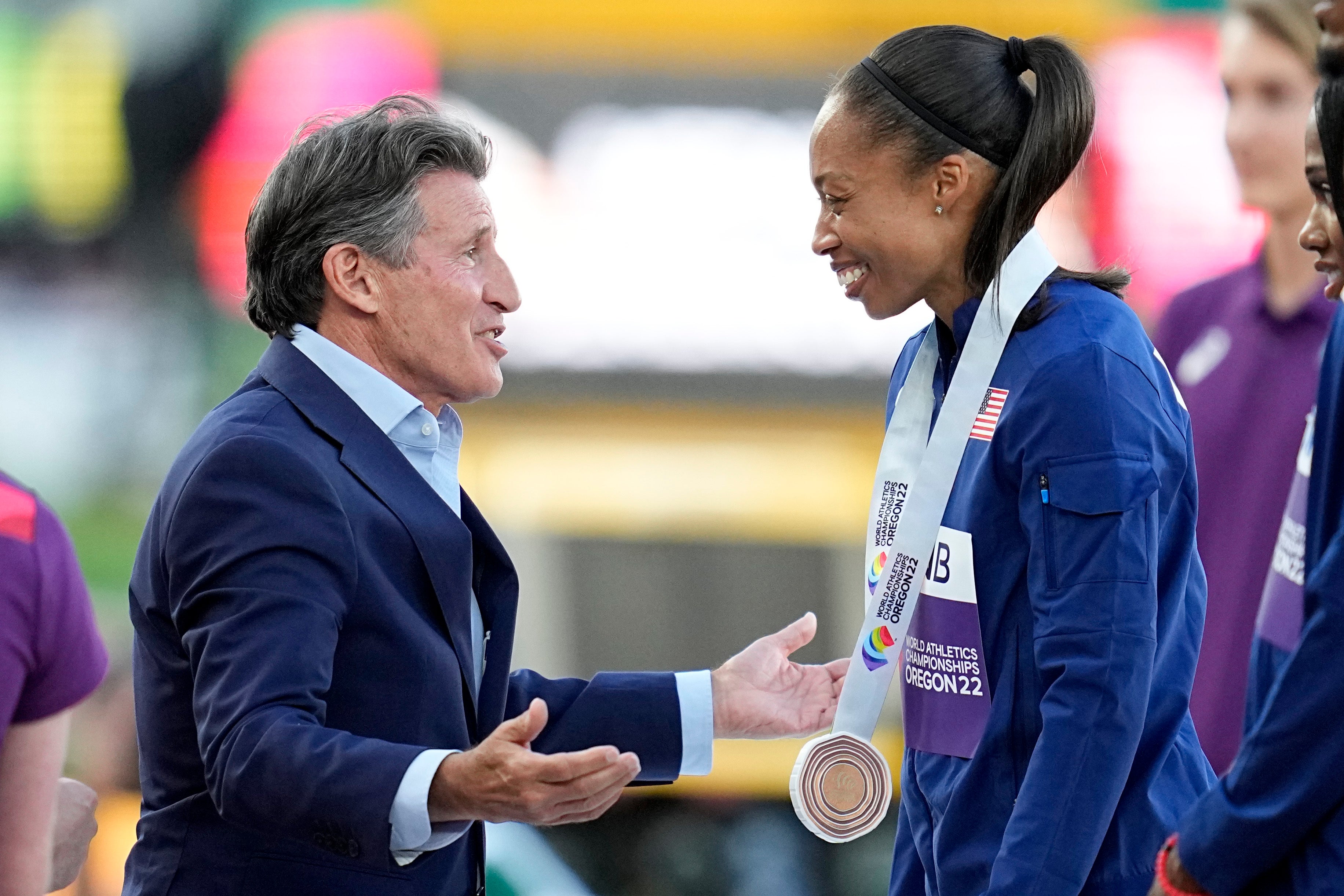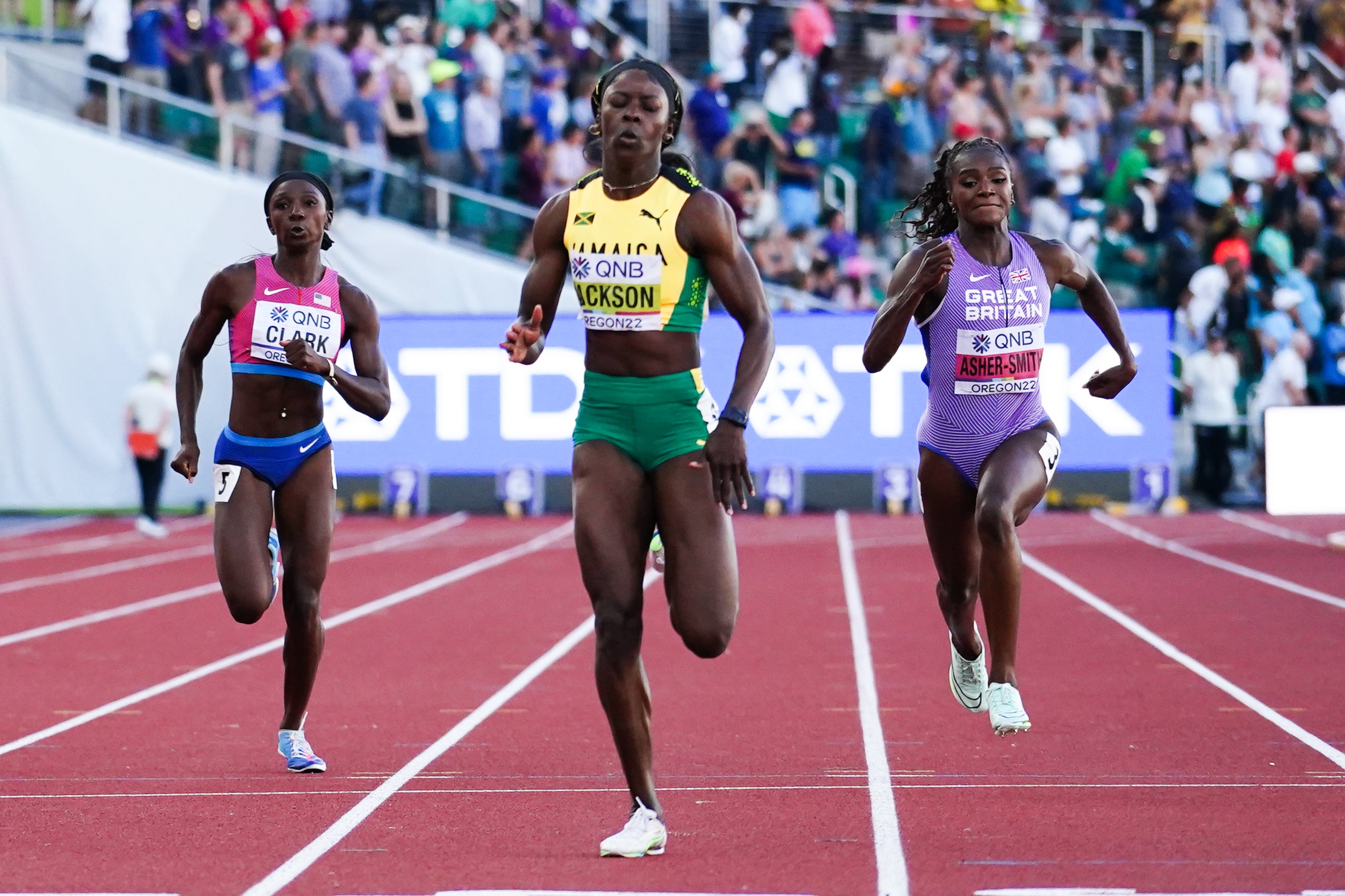Lord Coe wants world records from ‘different era’ to be broken by current stars
Shericka Jackson’s 21.45 seconds in the 200m made her the fastest woman alive and it is bettered only by Florence Griffiths-Joyner’s 21.34 from 1988.

Your support helps us to tell the story
From reproductive rights to climate change to Big Tech, The Independent is on the ground when the story is developing. Whether it's investigating the financials of Elon Musk's pro-Trump PAC or producing our latest documentary, 'The A Word', which shines a light on the American women fighting for reproductive rights, we know how important it is to parse out the facts from the messaging.
At such a critical moment in US history, we need reporters on the ground. Your donation allows us to keep sending journalists to speak to both sides of the story.
The Independent is trusted by Americans across the entire political spectrum. And unlike many other quality news outlets, we choose not to lock Americans out of our reporting and analysis with paywalls. We believe quality journalism should be available to everyone, paid for by those who can afford it.
Your support makes all the difference.Lord Coe wants to see any controversial world records scrubbed out by athletics’ current stars.
Shericka Jackson’s 21.45 seconds en route to winning the 200m at the World Championships on Thursday leaves the Jamaican as the fastest woman alive over the distance.
It is bettered only by Florence Griffiths-Joyner’s world record of 21.34 seconds from 1988, which is surrounded by doubt with questions over the legality of her time.
Griffiths-Joyner, who died in 1998, never failed a drugs test and there has been no definitive proof she doped. She also holds the 100m world record of 10.49 seconds from 1988.

But World Athletics president Coe would like to see the long-standing records fall, with Jackson and Jamaica team-mates Elaine Thompson-Herah and world 100m champion Shelly-Ann Fraser-Pryce edging closer.
“I would prefer that there is an organic change through the Shericka Jacksons, who are now being tested regularly,” he said.
“We have the AIU (Athletics Integrity Unit), we have their own national anti-doping agency that is now working far better than it was when I came into office, you’ve got agencies around the world.
“It’s a different world. I was part of that world so I’m not saying I was significantly different to anyone else there – well, I wasn’t a cheat – but the reality is there is very little legally you can do and I think we have to be realistic about it.
“Legally, they are the existing records. Legally, there’s nothing you can do or say beyond the evidence of a positive test. There was no positive test and this was at a time… well, it was my era so I have to accept it was a time when testing was a bit sporadic.
“We know it was a different era. There’s nothing legally we can do about them but they may not be the safest records on the book.”
One of the only other individual women’s track records left from the 1980s is Marita Koch’s 400m time of 47.60 seconds – at a time when East Germany was known to be systematically doping its athletes.
Koch never failed a drugs test and has maintained she did nothing wrong while Czechoslovakia’s Jarmila Kratochvilova holds the 800m mark from 1983.
Coe added: “When you look at athletes that had to come through that system, you have more sympathy than you do for the athletes who chose, of their own volition in liberal democracies, to do it.”
Join our commenting forum
Join thought-provoking conversations, follow other Independent readers and see their replies
Comments